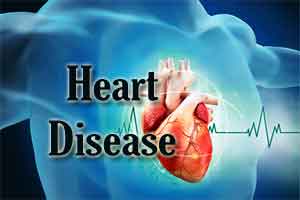- Home
- Editorial
- News
- Practice Guidelines
- Anesthesiology Guidelines
- Cancer Guidelines
- Cardiac Sciences Guidelines
- Critical Care Guidelines
- Dentistry Guidelines
- Dermatology Guidelines
- Diabetes and Endo Guidelines
- Diagnostics Guidelines
- ENT Guidelines
- Featured Practice Guidelines
- Gastroenterology Guidelines
- Geriatrics Guidelines
- Medicine Guidelines
- Nephrology Guidelines
- Neurosciences Guidelines
- Obs and Gynae Guidelines
- Ophthalmology Guidelines
- Orthopaedics Guidelines
- Paediatrics Guidelines
- Psychiatry Guidelines
- Pulmonology Guidelines
- Radiology Guidelines
- Surgery Guidelines
- Urology Guidelines
MUFA from plants only reduce mortality risk from heart disease

According to preliminary research presented at the American Heart Association’s Epidemiology and Prevention | Lifestyle and Cardiometabolic Health Scientific Sessions 2018,Diets rich in mono-unsaturated fatty acids from plants were associated with a lower risk of dying from heart disease or other causes compared to diets rich in mono-unsaturated fats from animals, which were linked to a higher risk of death from heart disease or other causes.
Mono-unsaturated fats are usually liquid at room temperature and solidify when refrigerated. Sources of plant-based mono-unsaturated fats include olive and other vegetable oils, avocados and many nuts and seeds. Sources of animal-based mono-unsaturated fats include full-fat dairy products, eggs, poultry, red meats and fish.
“Our results emphasize the importance of the source and quantity of mono-unsaturated fatty acids in the diet – we should eat more mono-unsaturated fatty acids from plant sources and less mono-unsaturated fatty acids from animal sources,” said Marta Guasch-Ferré, Ph.D., a research associate and one of the lead authors of this study along with Geng Zong, Ph.D., a research fellow. Both are at the Harvard School T.H. Chan of Public Health in Boston.
To assess the impact of mono-unsaturated fatty acids consumption on death from cardiovascular disease and other causes, researchers used data from 63,412 women from the Nurses’ Health Study and 29,966 men from the Health Professionals Follow-Up Study. Both studies used detailed food-frequency questionnaires administered every four years to evaluate the composition of the participants’ diets. This type of observational study can identify a trend among the participants but cannot prove cause and effect.
During an average 22 years of follow-up, there were 20,672 deaths among participants, 4,588 of them from heart disease. Analyzing the diet information, the researchers found:
- Participants with a higher intake of mono-unsaturated fatty acids from plants had a 16 percent lower risk of death from any cause compared to those with lower intakes.
- Participants with a higher intake of mono-unsaturated fatty acids from animals had a 21 percent higher risk of death from any cause.
- Replacing saturated fats, refined carbohydrates (like simple sugars) or trans fats with an equal number of calories (2 percent - 5 percent of the total) from mono-unsaturated fatty acids from plants might lower the risk of heart disease deaths and death from any cause between 10 percent and15 percent.
- Replacing mono-unsaturated fatty acids from animals with an equal amount of calories (5 percent of the total) of mono-unsaturated fatty acids from plants might lower the risk of heart disease deaths and deaths from any cause between 24 percent to 26 percent.
In the study, the risks were adjusted to account for several known factors that could influence the risk of death, including ethnicity; smoking status; intake of alcohol, fruits and vegetables and total calories; family history of chronic diseases; physical activity; body mass index; and heart disease risk factors when participants enrolled. The results should be interpreted with caution because the study relied on the participants’ self-reporting what they ate and because participants consuming higher amounts of plant-based foods may be more health conscious in general.

Disclaimer: This site is primarily intended for healthcare professionals. Any content/information on this website does not replace the advice of medical and/or health professionals and should not be construed as medical/diagnostic advice/endorsement or prescription. Use of this site is subject to our terms of use, privacy policy, advertisement policy. © 2020 Minerva Medical Treatment Pvt Ltd